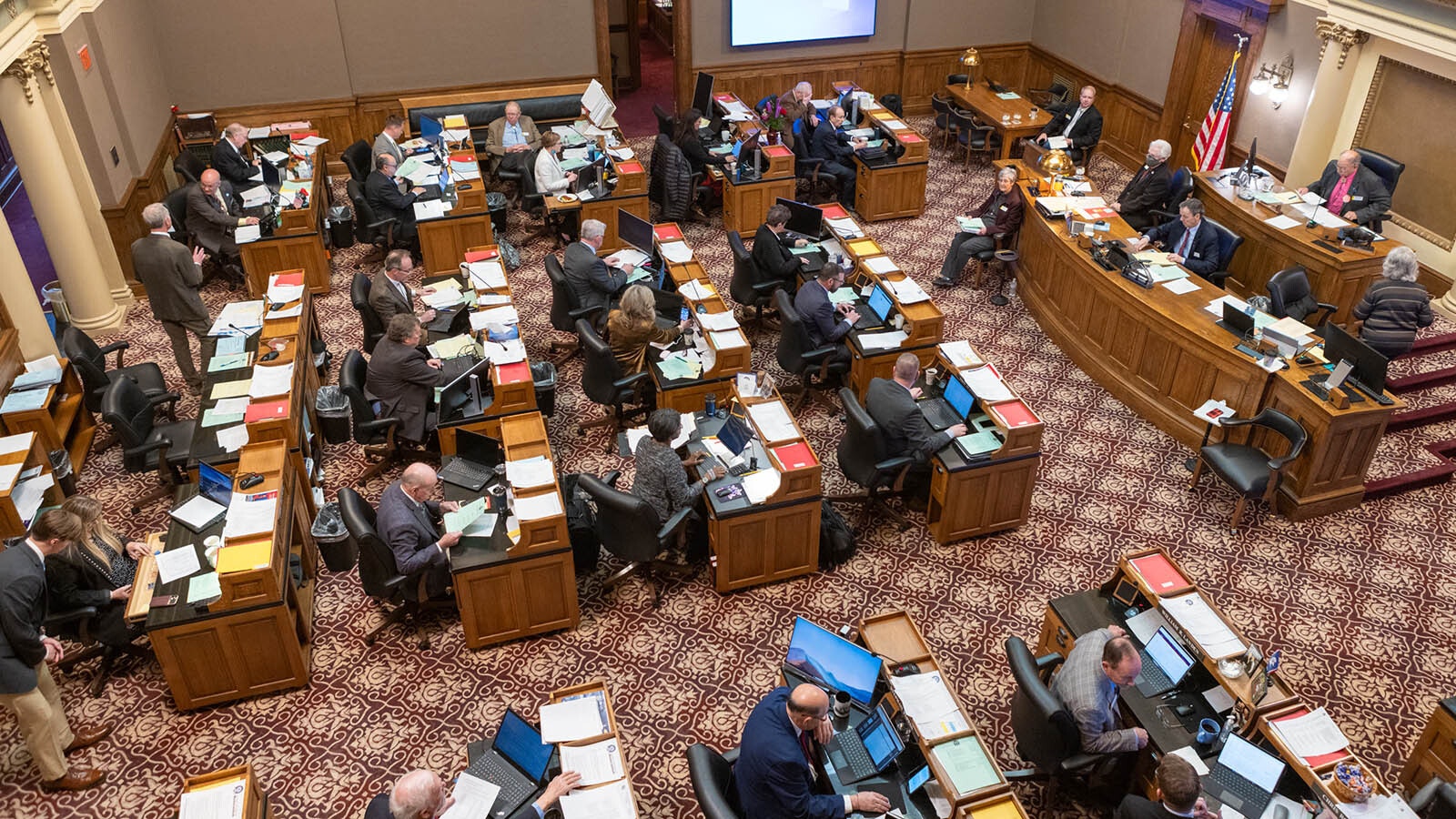An accelerated four-week Wyoming legislative budget session makes weeding through bills a merciless task.
After the first week of the 2024 session that was completed on Friday, 172 bills either failed to be introduced or were not considered at all. Another handful were introduced and defeated by a committee. Overall, it was a five-day massacre of the 367 bills that were filed, the second most for a budget session in Wyoming history.
In a Sunday press release, House Speaker Rep. Albert Sommers, R-Pinedale, described the dynamic as a necessary evil.
"Time is our enemy in a budget session," Sommers said. "We prioritize urgent fiscal matters, often leaving little room for other legislative proposals, which is exactly how the Wyoming Constitution intends a budget session to be."
All non-budgetary bills had to receive an introduction vote by Friday to stay alive. They also had to receive two-thirds approval to advance.
The 2020 session holds the record for most bills introduced during a budget session at 399.
Sommers pointed out that although there were 106 more bills introduced in the House this session than 2022, the House took a vote on 24 more pieces of legislation this year.
He also mentioned how three of his five bills died before receiving an introductory vote, with only one advancing to a committee.
“Despite their importance to individual legislators, bills can fall victim to the ticking of the clock as lawmakers grapple with prioritizing budgetary concerns within limited time constraints,” Sommers said.
Other Forces At Play
Some of the bills that died would have had little chance of passing into law whether or not they were introduced during a budget session.
Others received significant vocal support from certain lobbying groups on both sides of the political aisle, but still not enough support to overcome the two-thirds threshold.
Casper Republican Rep. Jeannette Ward’s House Bill 50 defined people’s sex as male or female by their biology at birth under Wyoming law, and precluded transgender people from using bathrooms of their choice. This bill went down on a 37-24 vote, having a majority but not meeting the two-thirds threshold.
Another bill the Freedom Caucus said did not go far enough would have outlawed most child transgender surgeries in Wyoming. This bill died on a 33-28 vote.
A similar but farther-reaching bill proposed by Sen. Anthony Bouchard, R-Cheyenne, passed 25-5 on introduction Friday.
Although the Legislature passed two bills in 2023 restricting most forms of abortion, only one of three bills aiming to restrict or regulate the practice this session passed introduction.
All of the bills remaining at this point will have a significantly better chance of passing than their killed brethren as they already received initial approval from at least two-thirds of a house, and will only need a majority approval moving forward.

Maneuverings
On the first day of the session, members of the Freedom Caucus bonded together to kill what they describe as $250 million “of wasteful spending” in the form of 13 committee bills.
Many Democrats and members of the opposing Wyoming Caucus criticized this action as a waste of time and money creating the bills during the interim session last summer.
In a Monday press release, the Wyoming Freedom Caucus accuses the “establishment majority” of killing “common sense, conservative measures in retribution for the demise of their wasteful, unconstitutional pet projects.”
Members of the Wyoming Caucus have similarly accused the Freedom Caucus of intense partisanship and gamesmanship for their own self-gain.
Secretary of State Chuck Gray came up as a discussion point twice during the first week of the session.
First was during a House Corporations, Elections and Political Subdivisions Committee meeting, where he advocated for a bill that would have prevented private funding of Wyoming elections.
Rep. Cody Wylie, R-Rock Springs, said it was not an appropriate time to bring the bill because of the rampant infighting in the Wyoming House.
“With the temperament and the atmosphere on the floor right now, I think it could be appropriate to table this to the next interim,” he said.
Gray came up again Friday when the House did its first reading of the budget bill.
Members of the Freedom Caucus questioned members of the House Appropriations Committee about why they added a footnote to the budget forbidding Gray from using state money for out-of-state litigation without specific legislative authority.
The inspiration for this footnote was Gray’s filing of an amicus brief with the Colorado and U.S. supreme courts in an effort to keep former President Donald Trump’s name on ballots across the country. Gray said the brief filing was paid for privately.
Knee Deep In The Budget
The short length of the budget session is designed around encouraging legislators to put the budget as a primary focus and priority of the session.
Individual bills will have until Wednesday to advance out of committee or they will expire. That day, there also will be critical budget negotiations as it is the last day for the budget to be considered in their houses of origin.
Both the House and Senate considered the biennial budget proposal Friday, which got a second reading on Monday in both chambers.
Leo Wolfson can be reached at leo@cowboystatedaily.com.





